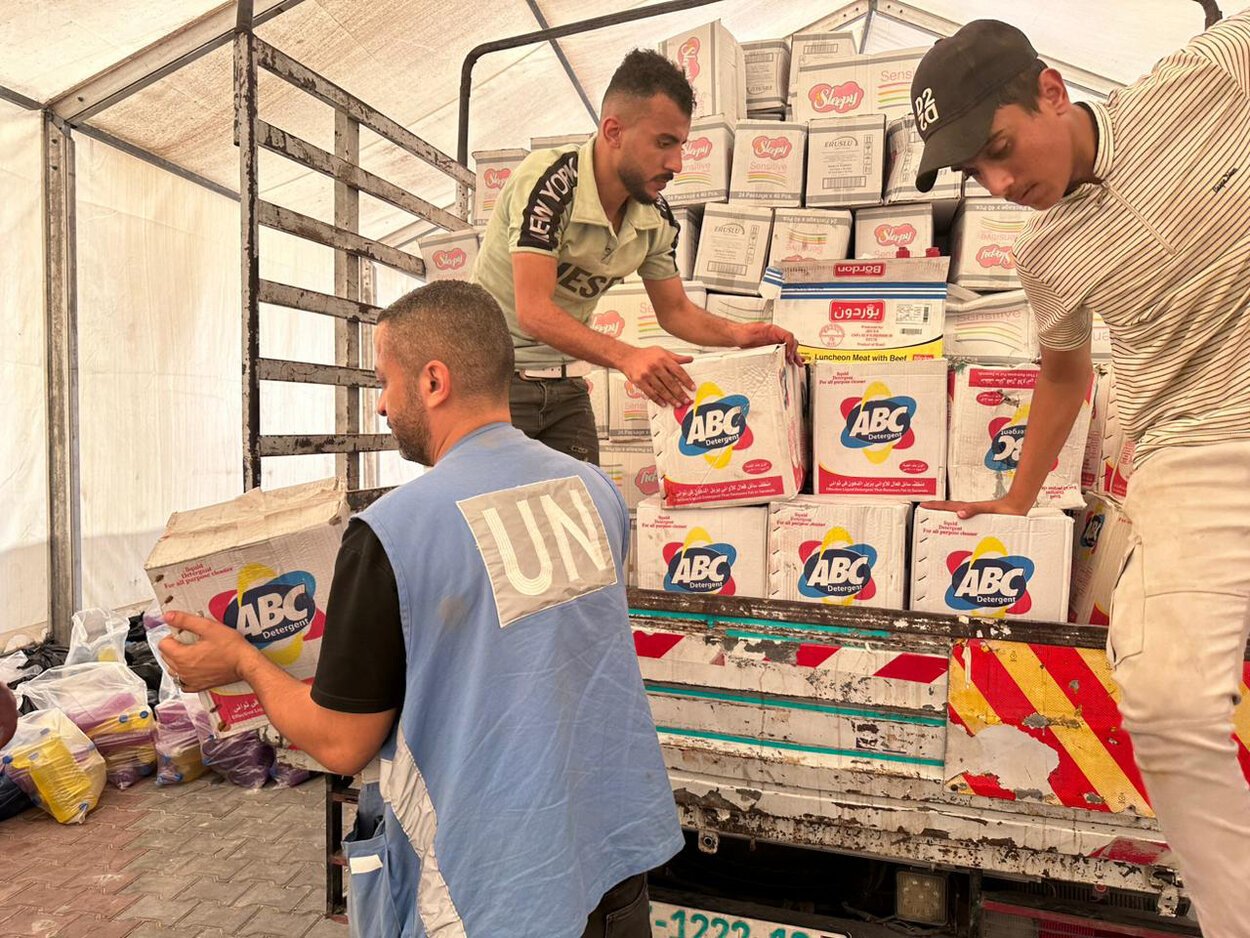On 30 October, a total of 26 trucks carrying humanitarian supplies entered Gaza through the Rafah crossing with Egypt. While the increase in the volume of aid entering Gaza during the past two days is welcome, current amounts are a fraction of what is needed to prevent further deterioration in the already-dire humanitarian situation, including civil unrest. As stated by Griffiths in his message to the Security Council, it is “urgent for us to replenish fuel supplies, which are vital for powering most essential services, including hospitals and water desalination plants, and to transport humanitarian relief inside Gaza.”
Water supply from Israel to southern Gaza came to a halt on 30 October for unknown reasons, while the announced repair of another pipeline from Israel to the Middle Area, ahead of its reactivation, did not take place. This follows several days of gradual improvement of water supply in central and southern Gaza following the distribution of limited amounts of fuel available in Gaza to key water facilities, enabling their reactivation. At the time of writing, no water is provided to Gaza from Israel.
Read the full report: Hostilities in the Gaza Strip and Israel | Flash Update #24
Aid supplies management in a UN facility in Gaza. Photo by UNRWA


